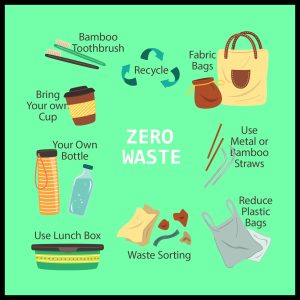Water Conservation Tips
Water Conservation Tips are becoming increasingly vital as global populations rise and climate change intensifies the strain on our planet’s freshwater resources. Every drop counts, and adopting Water Conservation Tips in our daily lives can make a massive difference. Whether you’re a homeowner, a business operator, or part of a local community, understanding how to use water wisely can ensure sustainability for future generations. In this guide, we’ll explore the best Water Conservation Tips, practical ways to reduce waste, innovative technologies that save water, and lifestyle changes that encourage a long-term commitment to protecting this most precious resource.

Understanding the Importance of Water Conservation
Before we dive into practical steps, it’s essential to grasp why Water Conservation Tips matter. Water is a limited resource — only about 2.5% of the earth’s water is fresh, and less than 1% is easily accessible for human use. By following smart water-saving methods, households can cut down consumption by up to 30%, saving money and supporting the environment. Moreover, reduced water usage means less energy is required for treatment and distribution, which also helps lower carbon emissions.
In the modern era, rapid urbanization and industrialization have put immense pressure on natural water sources. Rivers and lakes are drying, groundwater is depleting, and rainfall patterns are shifting. This makes it critical to implement smart water use practices and invest in technologies that encourage efficiency. Simple steps like fixing leaks, turning off taps, and using low-flow fixtures can go a long way. With small lifestyle adjustments guided by Water Conservation Tips, we can collectively prevent future water scarcity.
Smart Household Practices to Conserve Water
Implementing Water Conservation Tips in your home is easier than it sounds. Begin with fixing leaks, as even a small drip can waste up to 20 gallons of water per day. Install low-flow showerheads and aerated faucets to minimize waste while maintaining pressure. Switching to efficient dishwashers and washing machines that use less water can significantly reduce your consumption. Another great way to save water is by practicing greywater recycling, where lightly used water from sinks or showers is reused for gardening or cleaning.
In the kitchen, consider washing vegetables in a bowl instead of under running water, and reuse that water for plants. Cooking with minimal water not only conserves it but also retains more nutrients in your food. You can also install a rainwater harvesting system, which collects and stores rainwater for future use. These small yet effective Water Conservation Tips ensure sustainable water use while reducing monthly utility bills.

The concept of eco-friendly plumbing systems has also gained traction. Modern designs ensure water is distributed efficiently across fixtures, preventing unnecessary loss. Combining these with sustainable home design ideas — such as using native landscaping that requires less watering — can turn your house into an example of responsible water management.
Outdoor Water-Saving Methods and Gardening Techniques
When it comes to outdoor use, Water Conservation Tips play an equally significant role. Lawns and gardens consume a huge amount of water, often more than needed. To conserve, opt for drip irrigation systems that deliver water directly to plant roots, minimizing evaporation. Using mulch in garden beds helps retain moisture, suppress weeds, and improve soil health. Choose drought-resistant plants that thrive with less water, particularly in regions with arid climates.
Timing also matters — watering early in the morning or late in the evening prevents rapid evaporation. Installing smart irrigation controllers allows you to automate watering schedules based on soil moisture and weather conditions. Collecting rainwater for garden use is another sustainable step that reduces dependence on municipal supplies.
To make your outdoor routine even more efficient, maintain your sprinklers to avoid leaks, and group plants with similar watering needs together. These Water Conservation Tips not only promote sustainability but also result in lower water bills and healthier landscapes. Implementing a green garden management system can transform your yard into a model of water-smart living.
Industrial and Commercial Water Management
Industries and businesses also play a key role in applying Water Conservation Tips effectively. Factories that rely heavily on water — like textile, food, or chemical industries — can adopt closed-loop water systems to recycle and reuse water within their processes. Installing water-efficient cooling systems, conducting regular maintenance, and tracking consumption with smart meters can prevent wastage.
For commercial buildings, low-flow fixtures, sensor-based taps, and water-efficient landscaping are essential. Using sustainable manufacturing technologies not only reduces water consumption but also minimizes waste discharge and improves brand reputation. Businesses that invest in environmental management systems demonstrate leadership and responsibility, gaining trust among eco-conscious consumers.
Governments and NGOs are also promoting corporate water stewardship, where companies take proactive measures to manage water within their value chains responsibly. This includes collaboration with local communities, investing in water-saving technologies, and developing green policies. When industries follow Water Conservation Tips, they contribute to a global culture of sustainability that benefits everyone.

Modern Innovations and the Future of Water Efficiency
Technology has revolutionized the way we conserve water. The future of Water Conservation Tips lies in innovation — smart sensors, IoT-enabled devices, and artificial intelligence are being used to monitor water consumption and predict wastage patterns. For example, AI-driven irrigation systems can analyze soil and weather data to optimize water delivery, while leak detection systems can alert homeowners in real-time.
Desalination and wastewater recycling technologies are also advancing, making previously unusable water sources viable for communities. In agriculture, precision farming methods reduce water use while maximizing crop yield. Urban planners are designing sustainable cities with efficient drainage and water reuse systems to handle future challenges.
Moreover, schools and organizations are incorporating water literacy programs to educate the next generation about sustainability. The success of global conservation efforts depends on awareness, action, and adoption of smart solutions. Encouraging individuals to follow Water Conservation Tips in their daily routines ensures that technology and behavior change work hand in hand to protect water resources.
Creating a Water-Smart Lifestyle
Adopting a water-smart lifestyle means integrating Water Conservation Tips into every decision we make. Start by being mindful of your water footprint — from the clothes you buy to the food you consume. For instance, producing one kilogram of beef requires about 15,000 liters of water, so reducing meat consumption can significantly save resources.
Support local businesses that prioritize sustainability, and advocate for community-level initiatives like water-saving programs and reforestation projects. Engage in conversations about the importance of responsible consumption, and encourage others to follow suit. Practicing sustainable living doesn’t just save water; it promotes harmony with nature and ensures that resources remain available for future generations.
Governments, too, have a crucial role. Implementing efficient water policies, supporting research in water conservation, and funding infrastructure projects can help balance demand and supply. Incentives for households that install rainwater systems or low-flow appliances further encourage conservation.
Final Thoughts
In conclusion, Water Conservation Tips are more than just advice — they represent a global call to action. From individual choices at home to large-scale industrial policies, every effort counts. By using water mindfully, reusing where possible, and supporting innovation, we can protect our planet’s most vital resource.

The key is consistency — turning Water Conservation Tips into daily habits and encouraging others to do the same. Together, our collective actions can shape a sustainable future where clean, safe water is available to all. The time to act is now — because conserving water means preserving life itself.
